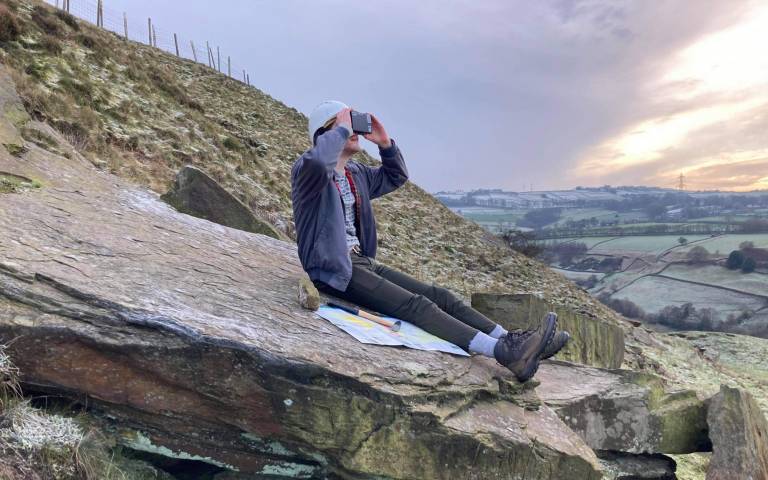ES Virtual Fieldwork
Cornwall
This 1st year Virtual fieldtrip aims to introduce (1) basic field skills, (2) basic structural geology observations, (3) igneous intrusions and geological mapping, and (4) granitic rocks and minerals, and metosomatic reactions.
This fieldtrip is currently being updated for 2021, but you can look at some taster material - click explore Cornwall on the bottom right! Or use the left-right arrows below to cycle through the other fieldtrip overviews
-
High-res 3D models
Field outcrops & samples -
Field skills
Strike and dips -
Making observations
Structural measurements -
Geological mapping
igneous intrusions
Dorset
This Dorset virtual field trip provides an introduction to the geology of the Wessex Basin through ‘visits’ to classic localities along the Dorset coast.
-
Dorset coast geology
Sediments and fossils -
Sediment deposition
Interpret sedimentary structures -
Past environments
Reconstruct geological histories -
Mezozoic Earth history
Lyme Regis - Kimmeridge bay
Pyrenees
This virtual fieldtrip aims to introduce (1) sediment transport / deposition processes in sedimentary environments, (2) palaeontological studies in sediments, including living habits, fossil preservation and trace fossils, (3) structural features of an evolving fold-and-thrust belt, (4) tectono-stratigraphy of an orogen and (5) key concepts in sequence stratigraphy.
-
Modern depositional environments
Rivers, deltas, lagoons, beaches -
Depositional environments
Cretaceous-Oligocene geological record -
Alluvial sediments
fans, channels and floodplain deposits -
Iberian Peninsula
Tectonic evolution
Betics
This virtual field course is designed as a problem-based approach. It provides 3rd and 4th Year students with an up-to-date perspective on micro- to macro-scale geological features and processes in the geological framework of crustal evolution and dynamics.
-
Orogenic processes
Continental collision, orogenic extension -
Rift basins
Mezozoic passive margins -
Volcanic rocks
Subduction & Extension related -
Messinian salinity crisis
Tertiary climate change
Scotland
The aim of the Virtual Scotland Mapping Field Course is to introduce students to the methods and concepts involved in making geological maps from visual materials and remotely-sensed imagery, and to train in good practice in making a real geological notebook based on those materials and a real geological map.
-
Mountain building
Compressional tectonics -
Thrust tectonics
Faulting and folding -
Mapping training
Make a geological map -
3D structure
Cross sections and visualisation
